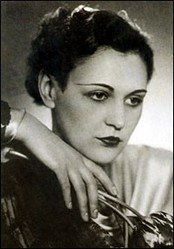Mirage III
by chris707
History of the Dassault Mirage III fighter, and its Mirage 5 and other derivatives.
Mirage III - Dassault's Mach 2 Delta
Even decades after production had ceased, Dassault's Mirage still stands as a symbol of French military prowess. Dassault began looking at lightweight fighters in the early 1950s - as was the case with other fighter builders, the firm believed that the Korean experience had shown the need for a small, fast, and highly maneuverable, if lightweight fighter.
The Mystere Delta design mated a Mystere-type fuselage powered by two British Viper turbojets with a delta wing and tail; flight trails began in June 1955, but the renamed Mirage I was really too small to have any future as an operational type, not having space for an effective radar, and with an armament that was restricted to a single AAM. The twin-engined Mirage II was not proceeded with, but development of the single Atar-engined Mirage III went forward. This retained the basic delta planform, but in much larger form, having more room for fuel and a Cyrano radar.
The prototype Mirage III flew in November 1956, and was followed up by a small number of preproduction Mirage IIIAs powered by Atar 9Bs and with provision for the SEPR 841 rocket pack. These were the first western European fighters to exceed Mach-2, and in 1959 one of the IIIAs set a 100km closed-circuit speed record. The first production version was the Mirage IIIC fighter of 1960, with a full operational fit and a pair of 30mm DEFA cannon to back up the missile armament; in this regard, the Mirage was superior to the American Phantom, which would not be fitted with a gun until years later.
First flown on April 6, 1961 the Mirage IIIE was a slightly stretched all-weather fighter-bomber, immediately discernible from the IIIC by its enlarged intakes and repositioned cockpit.
A pair of Mirage IIIAs were reworked as prototypes for the tactical reconnaissance IIIR model, with flight trails beginning in October 1961. This configuration replaced the radar with a camera nose carrying a forward and 4 side-looking oblique cameras, as well as a pair of forward cameras. the Mirage IIIR entered service with No.33 Escadre, replacing the RF-84F Thunderflash.
Switzerland
Even as the Mirage was entering French service, Switzerland was negotiating a deal to produce the type under license - the Mirage IIIS variant was designed to meet Swiss requirements, with a tailhook for operations from short wartime fields, Oerlikon cannon in place of the French guns, and provision for the AIM-4 Falcon AAM. The IIIS program was delayed, and cost overruns ultimately kept production limited to 58 examples.
Australia
By the early 1960s, the frontline RAAF fighter was the superlative Avon Sabre - indeed, the last examples of this type were only turned over in late 1961, and were the final new-build Sabres. But however capable the Sabres were, they were clearly outmatched the latest Soviet types, and in late 1960 it was announced that the Mirage III would be bought as a replacement. A total of forty eight IIIO(F) fighters, 52 IIIO(A) strike models, and ten IIID two-seaters would be bought, with No 75 Squadron transitioning to the Mirage in 1964.
VTOL Mirages
The Mirage II also formed the basis for a series of V/STOL fighter prototypes. V/STOL concepts got a lot of attention from NATO in the early 1960s, as it was feared that Soviet missile strikes might destroy the majority of airfields in the opening minutes of a conflict. The Balzac prototype was converted to demonstrate Dassault's approach to the NATO NMBR-3 requirement, which fitted RB.108 lift engines to the Mirage airframe. The Balzac was really the much reworked Mirage III prototype, given an Orpheus engine for conventional flight and eight RB.108s for vertical lift; control during vertical flight came from reaction thrusters in the nose, tail, and wings. A Balzac pilot was killed in a January 1963 crash; the aircraft was rebuilt and flown again, but was written off the following year after another fatal crash.
The Mirage III first went to war in the hands of Israel, which received 64 single-seat IIICJs, four IIIBJs, and a pair of IIICJ(R) recon machines, beginning in 1962. These were soon engaged against Arab aircraft, and in 1966 the first kill was made against the Mirage's Soviet-built counterpart, the MiG-21 Fishbed.
Israeli combat experience with the Mirage IIIC established the type's reputation in the IDF/AF, but the service also required a version with more austere electronics for the fighter-bomber role. This materialized as the Mirage 5, with the simpler Aida II in place of the Mirage III's Cyrano set, more internal fuel, and additional stores pylons. The prototype Mirage 5 flew in May 1967, mere weeks before the war that would cause a rift between France and Israel, resulting in the Mirage 5Js being instead turned over to France as Mirage 5Fs.
 | Marcel Dassault Mirage III Schiffer Military History |
 | Dassault Mirage III/5: Aircraft in Detail (Duke Hawkins) HMH Publications |
 | Dassault-Breguet Mirage III/5 (Osprey Air Combat Series) Osprey Publishing Ltd. (UK) |
 | Dassault Mirage III & Mirage 5 (Spotlight ON) MMPBooks Only $14.94 |
 | GAMD Mirage III & 5: Tome 2: Versions E RD BE et 5F (Les Matériels de l'Armée de l'Air) (French E... Histoire and Collections |
 | Dassault Mirage T-Shirt Mirage Fighter & Classic French Military Aircraft Only $22.99 |
Mirage Bibliography
Bibliography:
Photo: "New Dassault Mirage" Aviation Week December 17, 1956 p.31
Photo: First Mirage IIIC Air Pictorial January 1961 p.13
Photo: Mirage III-OI City of Hobart. Air Pictorial May 1961 p.143
"Dassault VTOL Progress" Air Pictorial September 1962 p.287 two photos
Photo: Columbian Mirage 5COA Air Classics Quarterly Review Spring 1976 p.50-51
Photo: A Pair of Brazilian F-103E/Mirage IIIEs. Air International May 1985 p.224
Photo: SAAF Mirage IIICZ 2 Squadron Armed Forces Vol.5 No.9 p.411
Photo: Underside view of a Mirage III with the rocket motor firing and a Matra 511 on the centerline. Air International January 1987 p.25
John Fricker "Pakistan Reorientates its Air Power" Air International February 1987 p.67-73+ Includes several photos of Mirage 5s.
"Dassault Mirage IIIEA - Twenty-five years of Fuerza Aerea Aregentina Operations. World Air Power Journal Vol.33/Summer 1998 p.22. Includes a photo of aircraft I-006 in commemorative paint scheme.
"Pakistan's New Mirages" Air Forces Monthly June 2001 p.12 Receipt of refurbished Mirage 5s.
Photo: "Pakistan Mirage 5EFs - two units" Air Forces Monthly July 2001 p.14
"Lebanese Mirages for Pakistan" Air Forces Monthly July 2001 p.15
Glenn Sands "RAAF Mirages" Model Airplane Monthly June 2002
Review: Dassault Mirage IIIC in 1/72 scale by PJ Productions. Scale Aviation Modeller July 2002
"First Kill Mirage" Building Mirage IIICJ No.59 from 1/72 AML kit. Scale Aircraft Modelling March 2003 p.18-23
"Black and White Mirage" Swiss AF Mirage IIIRs in special paint schemes marking the end of the type's service. Air Forces Monthly May 2003 p.19
"Encyclopedia of World Military Airpower" p.148-149 Three color profiles of Mirage IIICJs, one Mirage IIIR, one Pakistani Mirage IIIEP of No.5 Squadron, FAB Mirage 5BA, Libyan Mirage 5D, Abu Dhabi Mirage 5AD, Egyptian Mirage IIIEE.
Ray Bonds Classic Fighters: The Inside Story p.26-29. Includes a Mirage IIIE cutaway, and color photos of a Lebanese IIIEL and the Mirage IIIEX demonstrator.
You might also like
Survivors of the Bomb Tests at Christmas Island (Kiritimati)In the 1950s both the United States and the United Kingdom tests hydrogen bom...
Nancy WakeMOST WANTED







 Book Review: MiG-15 in actionon 08/07/2011
Book Review: MiG-15 in actionon 08/07/2011
 Japanese Battleshipson 08/03/2011
Japanese Battleshipson 08/03/2011



Comments